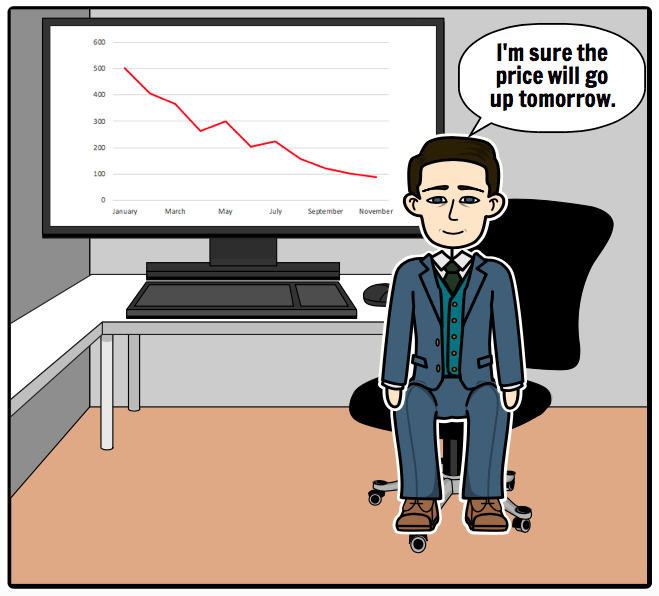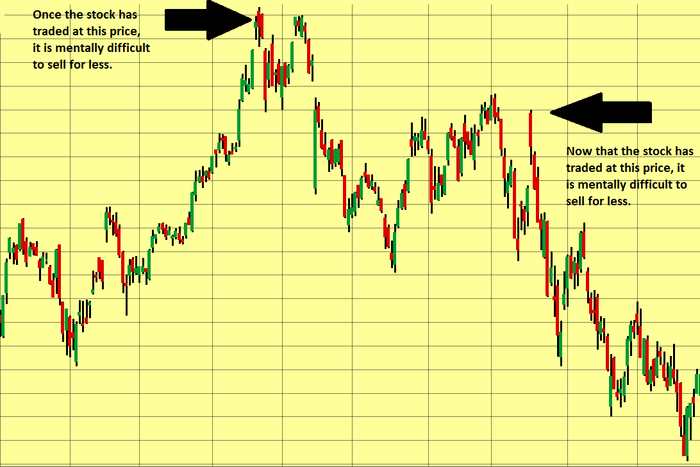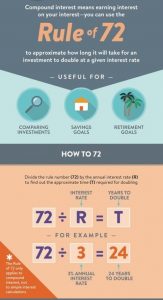The year is 2010. You and your best friend buy identical houses in a society for Rs. 50 lacs as an investment. In 2017 your friend sells his property for Rs. 80 lakhs. After hearing this, you also decide to sell your property, but you get offers of around 75 lacs. My friend sold it for 80 lakhs, there is no reason I should not get the same price.
Now you believe that if you just hold onto your property, its price will eventually soar. Time passes by and months turns into more than 2 years and still you have not got that elusive 80 lakh or more offer. In fact, now you get offers in the range of 70 – 72 lakhs.

What you just experienced is called the “disposition effect”. It’s one of biggest challenges almost every investor faces. Today we are going to discuss how you can avoid it.
What is a disposition bias?
This effect involves investors exiting successful positions to lock in profit very quickly, but also hanging on to unsuccessful ones for too long, waiting for the price to turnaround.
The disposition effect in behavioural finance makes an investor believe that a good run must end soon, so sell now; or a poor run must end soon, and so hang on. They could end up selling their best and hanging on to their worst. Prone to behavioural biases, we only have ourselves to blame in our poor investment performance.
It has been found that people dislike losing significantly more than they enjoy winning.
Disposition bias in investing
The following indicators might help you understand your approach to losses and gains.
You might have a loss aversion bias if you.
- Do not sell a mutual fund unit for a loss
- Find it easier to sell a winning investment than a losing investment
Suffering from the disposition effect, investors usually hold on to their losses and sell the winning ones.
Why do people behave like this?
Selling at a loss would mean that they (the investors) were wrong. Nevertheless, realising gains proves that the investors were right. Simply put, investors try to avoid regret and are looking for encouragement.
A famous example of selling too soon is provided by Warren Buffet. Duly impressed by the Disney’s performance, Mr. Buffet bought a significant share of Disney stock for 31 cents per share. The decision may have become brilliant, because now the Disney stock sells at $127! However, Warren Buffet decided not to wait long and sold his shares at 48 cents a year later. It means that he got just a quick 55% profit but missed a 21,290% gain.
Causes of disposition bias
The tendency to sell winning trades and hold onto losing trades is deeply rooted in the investor’s psychology. Below are possible causes for this behavioral bias:
Prospect Theory
In 1979, Amos Tversky and Daniel Kahneman traced the cause of the disposition bias to the “prospect theory”. The prospect theory proposes that when an individual is presented with two equal choices, one having possible gains and the other with possible losses, the individual is more likely to opt for the former choice even though both would yield the same economic result.
For example, most people prefer winning Rs. 5,000 with certainty rather than taking a risky bet in which they can toss a coin and either win Rs. 10,000 or nothing.
However, Kahneman and Tversky also found:
The same people when confronted with 100% chance of losing Rs. 5,000 versus a 50% chance of no loss or Rs 10,000 loss – they often choose the second option.
Regret aversion
Selling at a loss (even if it seems totally rational) means admitting that you were wrong, which is hard for many people. Holding the investment allows one to avoid the feeling of regret, which follows the mistakes we make.
In the case of a winning investment, holding onto it means risking the profit a fellow investor has already made. Taking a small profit instead creates the feeling of pride.
Self-control
Though the rational part of our mind reminds us that selling winners and not letting losers go is a wrong behavioural pattern, we still often struggle to take the necessary actions.
Although it’s unlikely that we will be able to bury the disposition bias for good, it is possible to learn how to reduce its influence on our decision-making. Why the reluctance to bail? Selling an asset below cost price isn’t primarily about economic loss, it’s about emotional loss. Once you sell below your purchase price, you can no longer tell yourself, “I still made a good choice, and it’ll come back.
Greed and Fear
Greed and fear are the dominant emotions investors must battle every day. No one has ever bought a stock in the expectation it will drop in value. When the market moves against us, the first emotion we experience is fear: “Uh-oh, I’m losing money!” Yet greed steps in and whispers softly into our ears “if you wait until it recovers, you won’t lose money.”
Status Quo Bias
Choosing not to decide is still a decision. When you think about taking a loss, it may be less painful to cling to the hope that a rebound in price erases the loss, versus the certain realization of taking that loss. I have often heard the line: “It is only a paper loss until I sell.” Funny, yet I cannot recall an investor ever saying: “It is only a paper profit until I sell.”
The Endowment Effect
This is the behavioral tendency to overvalue something we already own: when it comes to selling a stock we own, it is mentally difficult for us to sell for less when we have seen the stock trade at a higher price. We tend to feel that we are entitled to that price now.

Solutions
Think of It as a Swap
Taking a loss is easier when you think of it as a swap—in which you replace a loser with a new investment in a similar (but not identical) asset—rather than a sale. That makes taking action easier, since you aren’t forced to admit that your original judgment was a complete failure.
Trying to be rational all the time
Rather than admit failure, or through sheer inertia, investors with the disposition effect neglect the shares and let them tread water indefinitely. Rationally, it is best to sell these poorly performing items before they decline further and then re-invest the proceeds in fresh, researched, ventures with the expectation of making money.
“When should one sell?”
This is quite a common question and also one of the most important. Failure to clearly define your rules for selling a position can lead to your holding onto large losses or letting large profits slip away. Why? It’s simple: Emotions get in the way.




